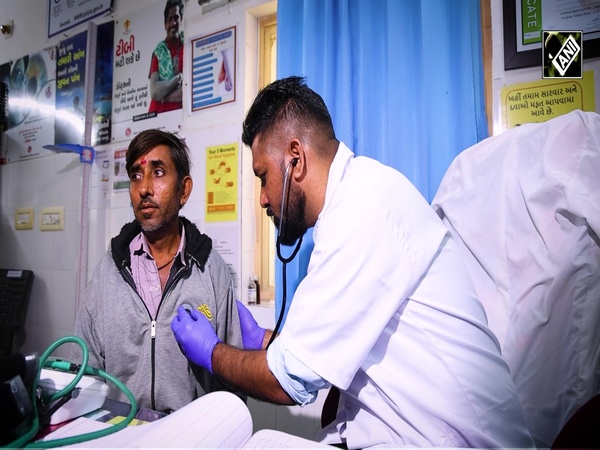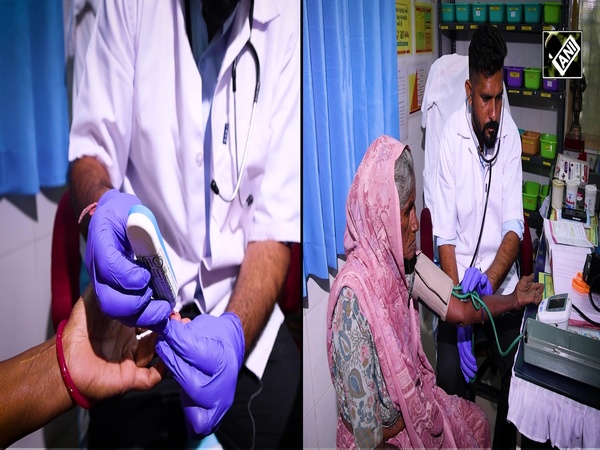Which Blood Test Can Help Detect Infections?
Sep 25, 2024

VMPL
New Delhi [India], September 25: By examining different elements in your blood, such as white blood cells, antibodies, and proteins, blood tests play a vital role in identifying and diagnosing infections, offering crucial insights into the body's immune response.
Blood tests are valuable tools for doctors to diagnose a range of health conditions, including infections. By examining the levels and behaviour of various substances such as proteins, cells, or chemicals in your blood, these tests can help identify infections, assess your immune system's health, and provide insights into your overall well-being. So, read on to learn more about the different blood tests used for detecting infections.
List of Common Blood Tests for Detecting Infections
Here are some of the blood tests commonly utilised to detect the presence of infections.
Complete Blood Count (CBC) Test
This test helps determine whether an infection is viral or bacterial and assess its severity. It also provides insights into whether hospitalisation might be necessary. The Complete Blood Count (CBC) test evaluates three key components: white blood cell count, haemoglobin, and platelet levels. White blood cells (WBCs) combat infections, an abnormal WBC count usually signals a bacterial infection. Additionally, unusual platelet and haemoglobin levels can indicate various types of infections.
2. C-reactive Protein (CRP Test)
C-reactive protein (CRP) is a protein produced by the liver during acute inflammation, often triggered by infections. Elevated CRP levels serve as a sensitive, though non-specific, indicator of inflammation in the body. In some cases, higher CRP levels may reflect the severity of an illness, suggesting a more serious condition. CRP is also useful for monitoring treatment effectiveness; a decrease in CRP levels typically indicates that the body is effectively fighting the infection.
3. Ferritin Blood Test
Ferritin is a protein responsible for storing and regulating iron in the body, serving as a key indicator of iron levels. During infection or inflammation, ferritin levels often rise as part of the body's acute phase response. This increase acts as a defence mechanism, restricting the availability of iron to bacteria and viruses that rely on it for growth.
4. Serology Tests
Also known as blood antibody tests, serology tests evaluate the immune system's response to infections by detecting antibodies in the blood. When the body encounters an infectious agent, it produces specific antibodies to combat it. These tests identify those antibodies, indicating exposure to a particular infection. However, serology tests might not detect an infection immediately, as antibodies take time to develop. Therefore, healthcare providers may order several tests over time to monitor the disease's progression or confirm a suspected diagnosis.
5. Blood Culture
A blood culture test is used to determine if an infection is present in your bloodstream, potentially affecting your entire body, known as a systemic infection. The test involves analysing a blood sample for bacteria or yeast that may be causing the infection. Doctors order this test to identify specific germs in the blood, allowing them to develop the most effective treatment plan for the infection.
6. DLC Test
A differential leukocyte count (DLC) test helps diagnose infections by measuring the proportions of different types of white blood cells (WBCs) in your blood. The test examines five common WBC types: lymphocytes, monocytes, neutrophils, eosinophils, and basophils. Abnormal levels of these cells can signal underlying medical conditions, such as infections. For instance, an increase in neutrophils typically indicates bacterial infections, while higher levels of lymphocytes and monocytes are more common in viral infections. You can easily book DLC test by Apollo 24|7.
Blood tests are essential diagnostic tools for detecting infections and assessing overall health. By analysing various components in the blood, such as white blood cells, proteins, and antibodies, these tests can help identify the presence and type of infection, whether viral or bacterial. They provide valuable insights into the body's response to infections, enabling healthcare providers to make informed decisions about treatment. So book DLC test if you want effective management and recovery from infections.
(ADVERTORIAL DISCLAIMER: The above press release has been provided by VMPL. ANI will not be responsible in any way for the content of the same)

















